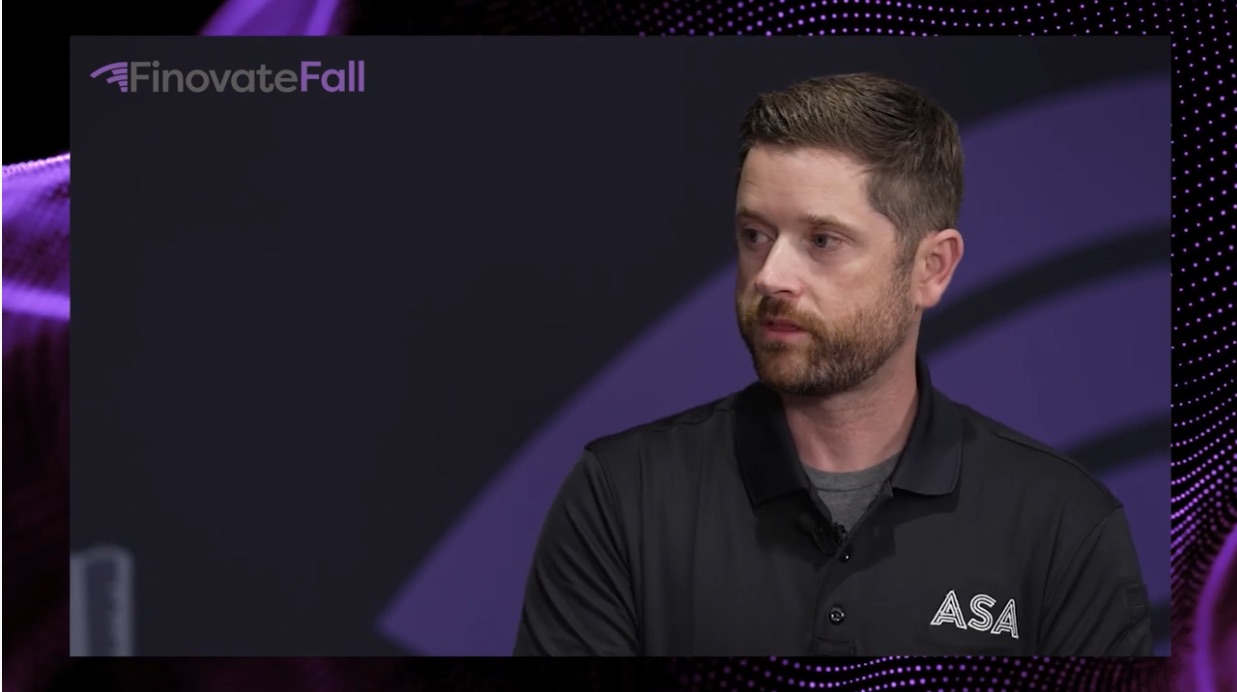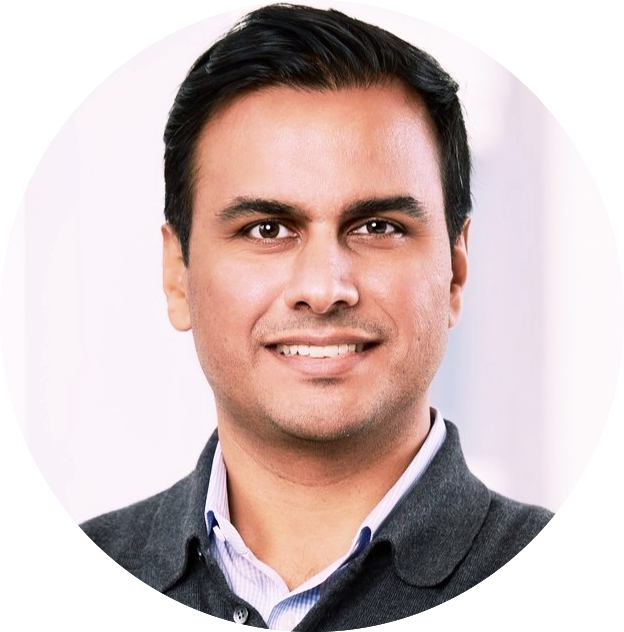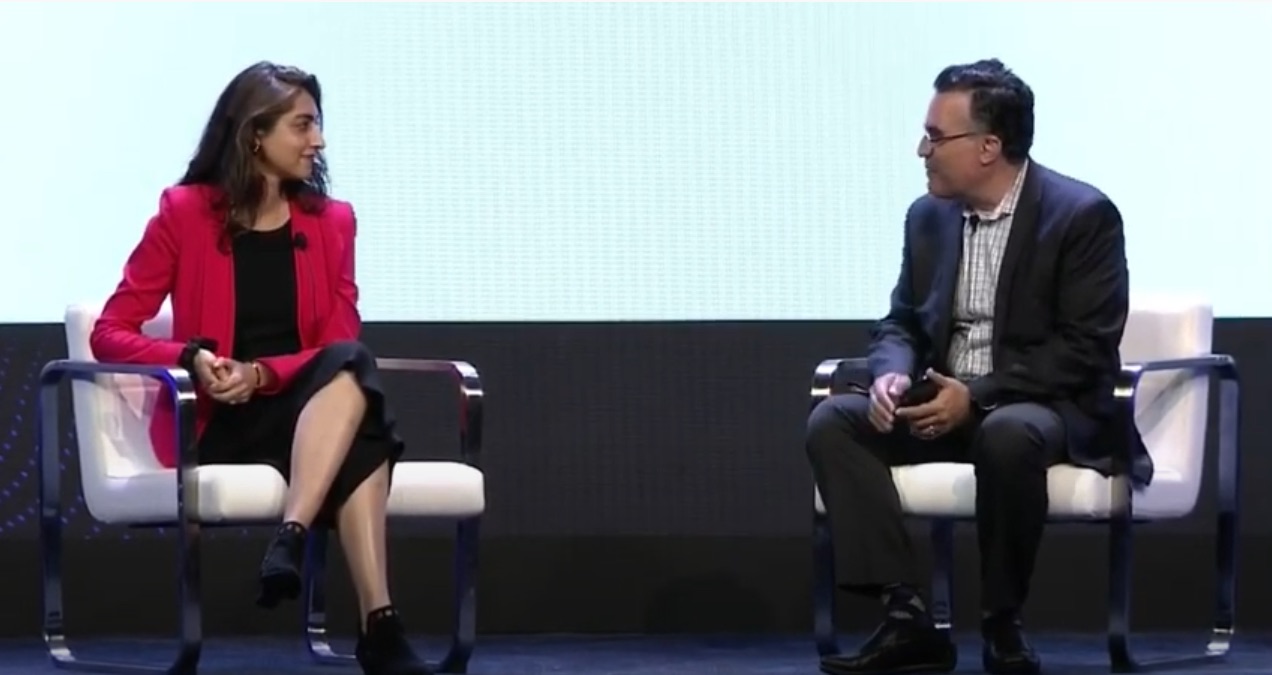
At FinovateFall we had a number of conversations with fintech professionals on the challenges of forging successful fintech partnerships. One of the more illuminating discussions we had was with Ryan Ruff, Head of Fintech Relationships with ASA Technologies, who discussed his company’s unique approach to helping fintechs and financial institutions build more constructive collaborations.
As both a fintech executive and a fintech founder, Ruff has a unique understanding of the challenges that fintechs and financial institutions often face when trying to work together. In our discussion at FinovateFall, he explained what some of those pain points are and how ASA Technologies’ platform enables both parties – fintechs and financial institutions – to maximize their interaction with each other, minimize inevitable risks, and focus on core competencies.

On the challenges financial institutions and fintechs face when trying to forge meaningful partnerships.
One of the things we’ve noticed is that everyone understands banking-as-a-service. What that really (represents) is a relationship between one fintech and one financial institution. And there’s a lot of risk there. On the financial institution side, they are asking the question: is this fintech really going to succeed? Do they have the capital? Are they PCI compliant? SOC-2 compliant? There’s a lot of risk in that relationship.
What we do is (offer) a contractual agreement where one financial institution enters into a partnership with all of the fintechs (on our platform), so that if one of them fails, it’s not that big of a deal because there are more coming and there are others on the platform, so it takes away that risk of partnering.
On the other side, the fintechs, when they get on to our platform, they are now partnering with all of the financial institutions, so they can go and find the ones that are most conducive to their clients and can send all their clients to that institution.
On the importance of building understanding and trust among all parties
It’s important that the technology piece is secure, that it’s being done in a compliant way … that’s very important and we work on that. But it’s also important that the revenue models work for both parties as well. (For example) if a fintech has a lead for a banking service like a home loan or a car loan or a student loan, they can send that back to the ASA platform, where the customer is actually a client for the institution. That institution gets to do that loan and then the referral fee goes back to the fintech that provided the referral. So both sides are making money, and they are able to stay in their core competencies and really work at scaling their core value propositions.
What makes a fintech special is that it’s a niche application. It’s something that’s going to help a specific user. Ironically, when you try to go partner with a financial institution, they are looking at it and saying I don’t know if this is going to affect a big enough segment of our user base, so I don’t know if it’s worth doing the partnership. The very thing that makes your fintech special, is what makes it hard to partner.
Now in (our) model, the financial institution is not just getting this one fintech that gets one sliver, they’re getting all the fintechs (which will) hit a much wider base collectively. So it makes more sense for both parties when you’re doing it “multiple (fintechs) to multiple (financial institutions).”
On the way that the current social and economic climate has impacted the work ASA does
It’s made the need for what we do even greater. People are changing what they need out of a bank, and they’re changing what they need out of a fintech because our world is changing. We’re trying to come into a new normal right now that a lot of people don’t understand, and wonder what the future is going to look like. We’ve got a platform where people can build those user experiences really quickly, get them to scale, and get them to market quicker than ever before. So really this moment brings an opportunity for our institutions and our fintechs to be able to collaborate together quickly to build those experiences that people are going to want in this new environment that we’ve all been thrown into.
Check out the rest of our conversation with Ryan Ruff from FinovateFall 2021 on creating successful fintech partnerships – and the importance of moving beyond open banking to what he calls “collaborative banking.”























